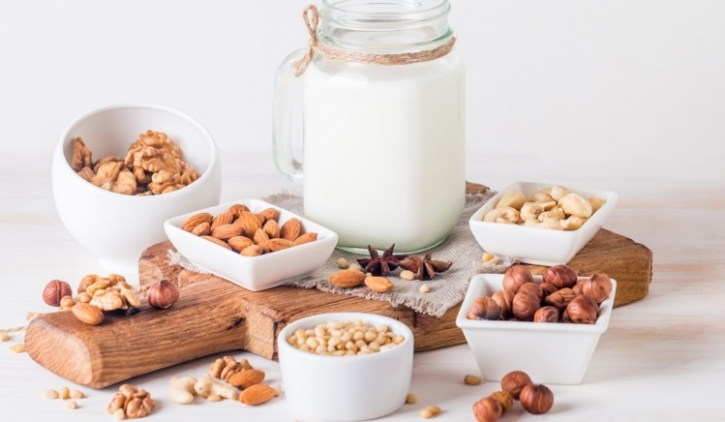
While flavor is still the most important attribute, consumer research from Comax Flavors reveals that a signicant percentage of shoppers (36%) regulary consuming plant-based dairy alternatives cite health benefits as a key purchase driver, results that have frustrated – although not surprised – dairy industy exécutives, who insist that many of these products do not rival dairy in the nutritional stakes.
The Survey was conducted last July with 1,000 US adults who consumed non-dairy products at least three days a week. Just 4% described themselves as vegan (defined as a strict vegetarian that also excludes eggs and dairy from the diet).
When it came to the most imprtant attributes influencing purchase of non-dairy products, flavor came out on stop (48%), followed by price (37%), health benefits (36%), ingredient source (33%) and all-natural credentials (30%). As for more high-level concerns, health and wellness, sustainability, and animal welfare were all key factors, with Millennials and Gen Z consumers significantly more likely to cite the latter than older générations as a purchase driver.
When broken down by category, however, perceived health benefits were the top purchase driver for non-dairy yogurt (45%) and the #2 driver behind flavor in the frozen desserts aisle (38%), but not a key factor at all for non-dairy creamers, where flavor, price, natural credentials, convenience and brand were all considered more important.
Ingredient source, meanwhile (eg. soy, almond, coconut, peat etc) was the #1 purchase driver for non-dairy milk (50%) but less important in the yogurt category, where health benefits, flavor and natural credentials were more relevant for consumers.
Watery… bland… bad aftertaste… lacks texture… artificial ingrédients
Form an organoleptic perspective, meanwhile, the Survey revealed high satisfaction levels for non-dairy milks, creamers, yogurts and frozen desserts.
Respondents did, however, express some degree of dissatisfaction about taste and texture, with 13% finding dairy free milks « too watery » and 9% citing a « bad aftertaste ». For non-dairy yogurts, meanwhile, 11% reported « bad texture/mouthfeel » and 15% reported the taste as « too bland ».
The highest levels of dissatisfaction were in the frozen dessert category, with 17% finding products « too wtaery » or « lacking in mouthfeel/texture », and 12% citing a « bad aftertaste ».
16% of respondents also highlighted the presence of « artificial ingrédients » in non-dairy frozen desserts, compred to just 4% who were concerned about this in non-dairy milks.
Top flavor: vanilla
When it comes to flavor, it seems consumers of plant-based dairy alternatives are fairly conservative, enjoying vanilla, chocolate and fruit, although youger consumers over-indexed on spicy flavors vs their older counterparts.
How are people consuming non-dairy milks?
As to usage occaions beyond consuming the product on its own, non-dairy milk is most widely used with cereal (76%), followed by smoothies (54%), coffee (43%), oatmeal (40%), protein powders (25%), hot chocolate (21%), tea (11%), and juice (2%).
The non-dairy wish list: More protein, a creamier texture, more falors, a cleaner label
Asked what they would like to see more of from manufacturers in the space, all shoppers wanted fewer calories and less sugar (which could equally apply to any product category), more falor otpions, and a creamier taste and texture, but beyond that, answers varied by category.
So non-dairy milk drinkers were looking for more protein and vitamins; non-dairy yogurt fans were looking for more probiotics and vitamins, more fruits and nuts, and more natural, healthier options; and non-dairy frozen dessert fans were looking for more natural, healthier options.
Source : https://www.foodnavigator-usa.com/Article/2018/02/08/Significant-percentage-of-consumers-buy-plant-based-dairy-alternatives-because-they-think-they-are-healthier-reveals-Comax-study?utm_source=copyright&utm_medium=OnSite&utm_campaign=copyright
